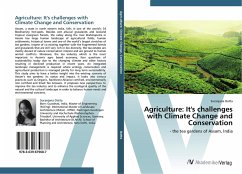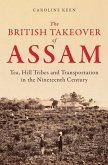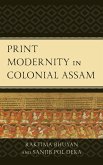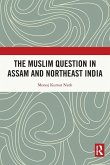Assam, a state in north eastern India, falls in one of the world's 34 Biodiversity hot-spots. Besides wet alluvial grasslands and lowland tropical evergreen forests, the valley along the river Brahmaputra in Assam has large human landscape of agricultural fields, human settlements, historical towns and one of the world's largest stretches of tea gardens. Inspite of co existing together with the fragmented forests and grasslands that are still very rich in bio diversity, the tea estates are mostly devoid of nature conservation interest and are ground to human animal conflicts. Moreover, the tea industry which is the most important in Assam's agro based economy, face questions of sustainability today due to the changing climate and other factors resulting in declined production in recent years. An integrated landscape management is required where ecology conservation and agricultural production is managed jointly for long term sustainability. This study aims to have a better insight into the existing scenario of Assam's tea gardens; its status and impact. It looks into various practices such as Organic, Rainforest Alliance certified, environmentally non certified and Small Tea Growers. It proposes new perspectives to improve the tea industry and to enhance the ecological quality of the natural and the cultural landscape in order to balance human needs and environmental concerns.
Bitte wählen Sie Ihr Anliegen aus.
Rechnungen
Retourenschein anfordern
Bestellstatus
Storno









